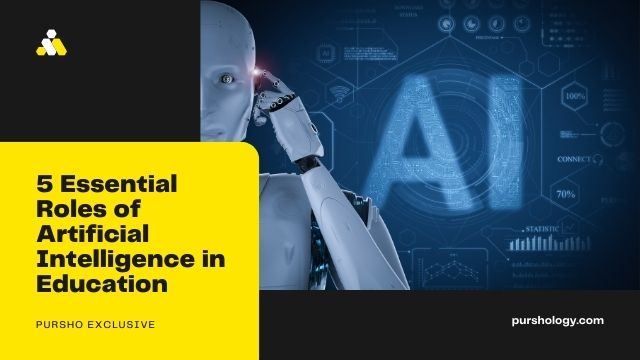Artificial intelligence involves machines taking the next move without human intervention. The absence of human intervention has been one of the reasons the education sector was slow to embrace some technology. However, times have changed and educationalists are having a blissful moment with AI.
Image Source: Pexels
Teachers have incorporated AI in their daily classroom engagements. AI is especially useful during remote learning to help in, among other areas, choosing the right content and monitoring the progress of learners. How is Artificial Intelligence shaping the education sector? Here are a few pointers.
- Helps basic education administration tasks
Artificial Intelligence is a form of advanced automation. The education sector has burdened the teacher with such tasks as sorting kids into clusters and determining their characteristics based on the data collected. The teacher has to depart from his primary role of imparting knowledge. Artificial Intelligence is now allowing teachers to stick to their primary roles as machines, systems, and software handle the administrative work.
A student can enter his or her details on a screen remotely. The system will classify him, help him to choose a subject, allocate a class, and designate subjects, among other tasks, without involving the teacher. Teachers can relax, advance their skills, and even prepare better content for their classes. You can buy college essays online to save time and allow you to focus on other more important engagements.
Automating education administration helps institutions to operate faster. The resulting efficiency makes the work easier for teachers. It improves accuracy and will eliminate bias that may be associated with human weaknesses.
- Pacing learning
Each student is supposed to complete a specific amount of content within a stipulated time frame like a lesson, day, week, month, or semester. Some students are slow while others can complete a unit in a few weeks. Artificial Intelligence will help the teacher to provide the right pace for each student. Skipping some of the sessions or wasting time on sessions that the students have already understood makes the learning process ineffective.
Artificial Intelligence helps tutors and institutions to customize the learning process by providing the right pacing. A student is only allowed to proceed to the next lesson after completing the previous one. In case the system detects that a student is struggling with one topic or subject, it will recommend appropriate content to aid in achieving the right pace.
- Choice of content
Learning takes place when you match a student to the right content. The appropriateness of content depends on the study grade. It means that a student should access content for the next grade once he completes the designated content for his current grade. Previously, the teacher decided on the class. This meant that some students were forced to wait for others. Some were pushed forward before they understood the content for the previous level. Artificial Intelligence is changing the trend.
Artificial Intelligence assesses the performance of each student on a particular topic. It will open a route based on the performance. In case a student did not understand a topic, Artificial Intelligence bots will recommend revision. By the time the system allows a student to proceed, you are sure that he understands the topic at that level. No student will be delayed from proceeding or pushed before he can understand the current level.
- Identifying strengths and weaknesses
Learning has always been standardized. The strengths and weaknesses displayed by individual students were assumed. Artificial Intelligence has come up with a solution. It will now be easier to spot the strengths and weaknesses displayed by individual students.
A student can be directed to take a particular course or career path based on data collected by AI study systems. Educationists no longer fall into the trap of mismatching personal character, ability, and academic capability. The data will give a clear picture of the capacity of a student to perform well in a given field.
- Provide learning feedback
Feedback shapes the next step in the learning process. If a student is struggling with a particular topic, the teacher can pay more attention. If a student prefers and does better with a particular type of content, Artificial Intelligence will demonstrate it. Learning processes will, therefore, cease to be about guesswork. Teachers, students, and administrators can make data-informed decisions.
Artificial Intelligence has made learning easier for the student. Teachers have more accurate data to make decisions and help their students to attain their learning goals. The education ecosystem is more accurate because it uses data and automated systems to make decisions.







